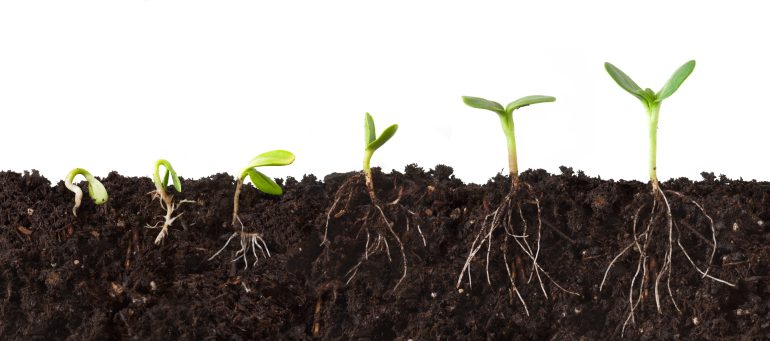Plant nutrition is a fundamental aspect of agriculture and horticulture, focusing on the understanding and management of essential nutrients required for plant growth. It’s a science that plays a pivotal role in maximizing crop yields, quality, and overall agricultural sustainability. In this article, we will explore the key components of plant nutrition, the essential nutrients for plant growth, their functions, sources, and sustainable practices to ensure productive and healthy crops. For more information regarding hydroponic plant one can visit our site https://hydroponicglobal.com.au/.
The Role of Nutrients in Plant Nutrition
Plants, like all living organisms, require specific nutrients to grow, develop, and reproduce. These nutrients serve various functions in plants, much like vitamins and minerals do in animals:
1. Primary Macronutrients: These are required in relatively large quantities and include:
– Nitrogen (N): Essential for chlorophyll formation, photosynthesis, and overall plant growth.
– Phosphorus (P): Vital for energy transfer, root development, and flower and fruit production.
– Potassium (K): Important for water uptake, enzyme activation, and stress resistance.
2. Secondary Macronutrients: These are also required in significant amounts and include:
– Calcium (Ca): Critical for cell wall formation and nutrient uptake.
– Magnesium (Mg): Essential for chlorophyll production and photosynthesis.
– Sulfur (S): Necessary for amino acid and protein synthesis.
3. Micronutrients: These are needed in smaller quantities but are equally vital for plant health. They include:
– Iron (Fe): Essential for chlorophyll synthesis and electron transfer in photosynthesis.
– Manganese (Mn): Involved in enzyme activation and photosynthesis.
– Zinc (Zn): Essential for hormone production and enzyme function.
– Copper (Cu): Required for various enzymatic reactions.
– Molybdenum (Mo): Important for nitrogen metabolism.
Functions of Essential Nutrients in Plant Growth
Each essential nutrient serves specific functions in plant growth:
– Nitrogen (N): Promotes leafy growth, enhances photosynthesis, and influences protein synthesis.
– Phosphorus (P): Facilitates energy transfer, encourages root and flower development.
– Potassium (K): Regulates water movement, enhances drought tolerance, and influences photosynthesis.
– Calcium (Ca): Strengthens cell walls and enhances nutrient uptake.
– Magnesium (Mg): Essential for chlorophyll formation and overall photosynthesis.
– Sulfur (S): Contributes to protein synthesis and amino acid production.
– Iron (Fe): Necessary for chlorophyll production and electron transfer.
– Manganese (Mn): Activates enzymes and aids in photosynthesis.
– Zinc (Zn): Regulates plant hormone production and enzyme activity.
– Copper (Cu): Helps in enzyme function, especially in lignin formation.
– Molybdenum (Mo): Facilitates nitrogen metabolism.
Sources of Essential Nutrients
Plants acquire essential nutrients from various sources:
1. Soil: Nutrients are primarily obtained from the soil through root uptake. The nutrient availability in the soil depends on factors like soil type, pH, organic matter content, and microbial activity.
2. Fertilizers: Fertilizers are used to supplement soil nutrients when natural nutrient levels are insufficient to meet plant requirements. They come in various forms, including synthetic and organic.
3. Organic Matter: Decomposing organic matter in the soil releases nutrients, making them available to plants. Organic materials like compost and manure enrich the soil with essential nutrients.
4. Microbial Activity: Beneficial soil microorganisms help break down organic matter and convert nutrients into plant-available forms through processes like mineralization.
5. Plant Residues: When plants decompose, they release nutrients back into the soil, which can be used by subsequent crops.
Sustainable Plant Nutrition Practices
Sustainability is a key consideration in modern agriculture, and plant nutrition is no exception. Sustainable practices aim to optimize nutrient use efficiency while minimizing environmental impact:
1. Soil Testing: Regular soil testing helps assess nutrient levels and guides fertilization decisions, preventing over-application and nutrient runoff.
2. Nutrient Budgeting: Calculating nutrient inputs and outputs helps maintain balanced nutrient budgets, reducing waste and environmental contamination.
3. Precision Agriculture: Data-driven technologies, such as GPS-guided machinery and sensors, allow for precise nutrient application, reducing waste.
4. Cover Crops: Planting cover crops during fallow periods can help improve soil health, increase nutrient retention, and reduce erosion.
5. Crop Rotation: Rotating crops can break pest and disease cycles, improve nutrient cycling, and reduce the risk of nutrient imbalances.
6. Legume Cropping: Legumes have nitrogen-fixing bacteria in their roots, which enrich the soil with nitrogen, reducing the need for synthetic nitrogen fertilizers in some crop rotations.
7. Organic Farming: Organic farming practices emphasize the use of organic matter (compost, manure) to enhance soil fertility and reduce reliance on synthetic fertilizers.
Challenges and Considerations
While nutrient management is crucial for plant health and agricultural sustainability, several challenges and considerations should be kept in mind:
1. Nutrient Loss: Nutrients can be lost to the environment through leaching, volatilization, or runoff. Managing these losses is critical for environmental protection.
2. Nutrient Imbalances: Overapplication of one nutrient or neglecting micronutrients can lead to nutrient imbalances that harm crop health.
3. Cost: Nutrient management, including the purchase of fertilizers and the implementation of precision practices, can be costly for farmers.
4. Regulatory Compliance: Environmental regulations may restrict the use of certain fertilizers or require farmers to adopt specific nutrient management practices.
The Future of Plant Nutrition
As agriculture continues to evolve to meet the challenges of feeding a growing global population while minimizing environmental impact, the science of plant nutrition will remain at the forefront. Advances in technology, including sensor-based monitoring systems and automated nutrient delivery, are likely to make nutrient management more efficient and precise. Additionally, a focus on circular agriculture, where nutrients are recycled and reused, will become more prevalent as sustainability concerns grow.
In conclusion, plant nutrition is a fundamental science in agriculture that provides the knowledge and tools necessary to ensure healthy and productive crops. As agriculture embraces innovation and sustainable practices, responsible nutrient management will continue to play a pivotal role in shaping the future of farming and food production.

